Creative Assembly has crafted an epic rendition of Games Workshop’s storied license and a thoroughly engaging Total War game in its own right.
The team behind Total War: Warhammer has already escorted us through the rise and fall of the Roman Empire, the unification of Japan, the Napoleonic wars, and the brutal conquests of Attila the Hun. With few exceptions, the franchise has managed to up the ante with every installment, and in so doing create a series of games that defy comparison to other strategy titles. Their dive into the Warhammer universe is no exception.
A quick primer, for those inexperienced in the Creative Assembly school of grand strategy: Total War games combine a sort of Civilization-lite turn-based overworld with real-time combat on a scale that few games have ever managed to approach. Each element of the package is very nearly a game in its own right, but the combination is an intoxicating tour de force in controlling a militant empire bent on global domination.
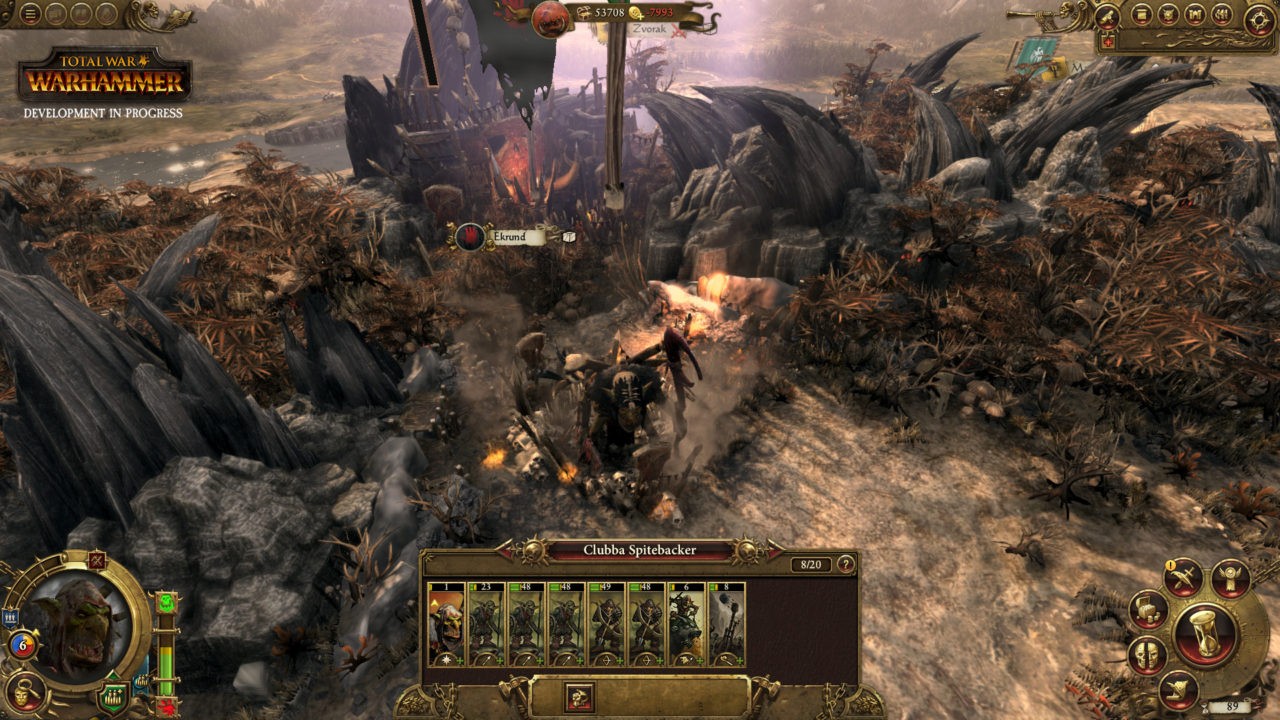
Like previous games, your choice of faction will influence your starting position, resources, leadership qualities, and units. But unlike previous entries in the series, Total War: Warhammer’s factions also present core gameplay elements that are wildly different. Whether you’re managing the restless bloodthirst and rage of an Orcish “WAAAGH!” or calculating the inexorable spread of Vampiric corruption through the land, you will dare not approach one side with the same strategies of another. It quite simply will not work.
That’s part of the magic of the game. In Total War: Shogun 2 — a previous favorite installment — factional strategy was largely determined by a series of perks and penalties to different elements of gameplay. That alone provided near-endless tactical variation. But Total War: Warhammer expands differences from merely geographic to game-changing.
During the turn-based strategic layer of the game, you will manage the fortification of military strongholds and infrastructure, as well as the position of your armies. Along the way, you’ll need to negotiate the equally tumultuous diplomatic relations with the other races vying for control. Alliances will be written, tribute will be demanded, and more often than not, war will be declared. Dwarves will add Grudges to their legendary Book, and Chaos will make an indiscriminate threat to consume all.
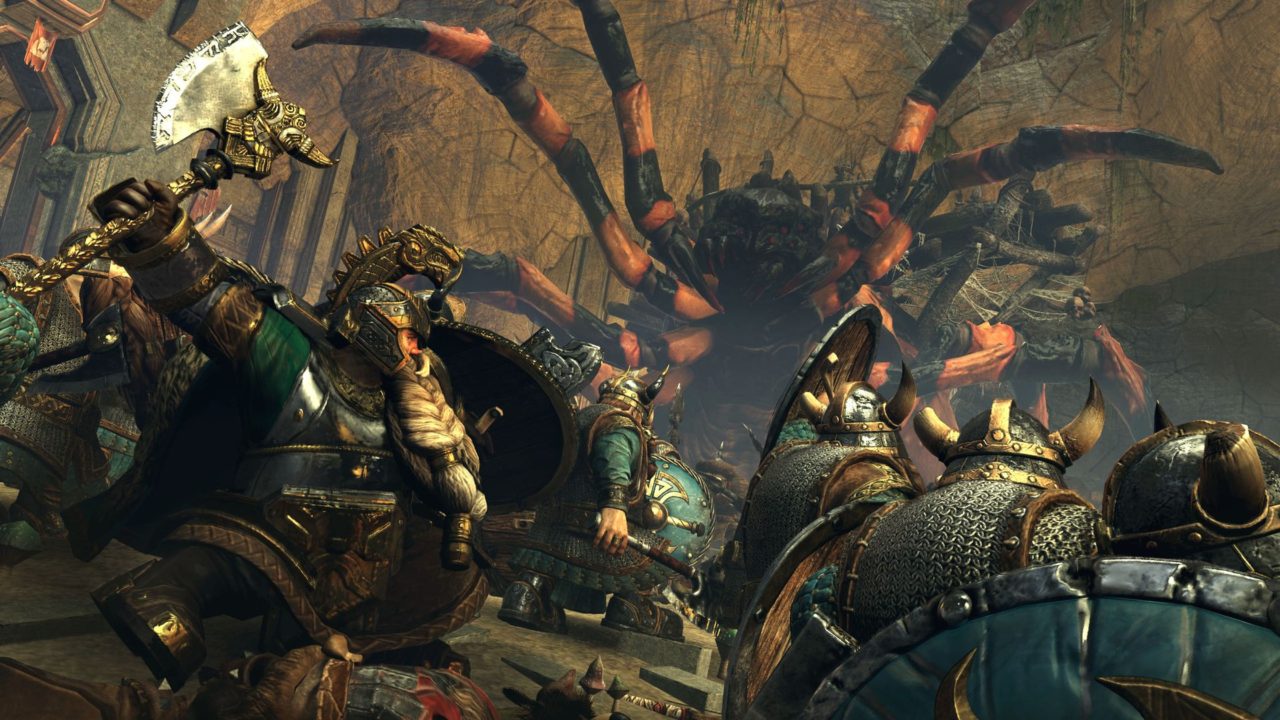
Battle is inevitable. There are no diplomatic victories to be had between enemies whose creeds dictate the utter destruction of their historic foes. You will be afforded the opportunity to let the game’s competent artificial intelligence decide these clashes for you, but doing so will rob you of experiencing the heart of the game. Battles take place between hundreds and thousands of units, arrayed across vast landscapes. The “rock-paper-scissors” relationships between swords, spears, cavalry, and archers, have been shaken by the addition of monsters and arcane machinery, which further broaden the tactical scope of each conflict.
The lords and heroes you can lure to your side will function both as leaders of your armies and agents of your more subtle machinations. Each can be developed in numerous ways, both magical and mundane. Each has their own detailed bio and a set of benefits and/or detriments reflective of their place in the world. As they complete tasks, they can be further customized with weapons, items, skills, spells, and even their own personal entourage of hangers-on. These are awarded for the completion of quests, taking territories, or defeating other heroic enemies. By the end, you will almost certainly developed a sort of attachment to your leaders typically reserved for epic RPGs.
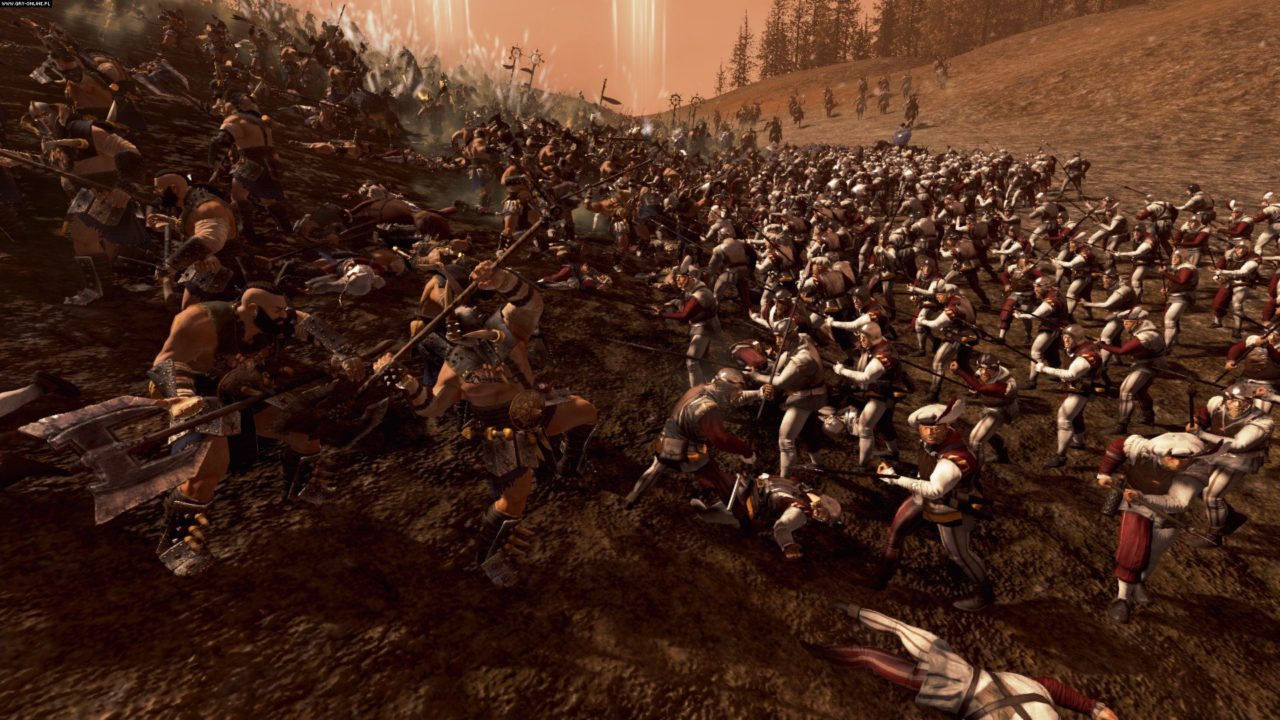
Each faction sports two “leaders,” offering a bit of further customization to your approach. Each leader will face a series of faction-specific quests to provide the only real plot development present in the campaign. This is one of the few gripes I have with the game: the narrative is, for the most part, yours to imagine. The game doesn’t suffer overmuch for the decision — Sid Meier’s Civilization and Total War alike have done much the same for the entirety of their series, but it feels odd to play in the Warhammer universe without the presence of the expansive lore for which the license is known. Because of that, some of the drama typical of a game rooted in the Warhammer universe is lost.
But what storytelling is absent is more than made up for by amazing visual and sound design. Despite the need to constantly maneuver and flank, charge and retreat and unleash spells, I could not help but repeatedly zoom the camera all the way in to watch the sorts of epic clashes usually reserves for war movies. Your heroes and monstrous units clash with lethal enthusiasm, and orderly formations break into bloody chaos when the front lines meet in a devastating rush of metal and flesh. It’s a spectacle all its own, and one that will tempt you to make liberal use of the “replay” feature available to immortalize your favorite battles.
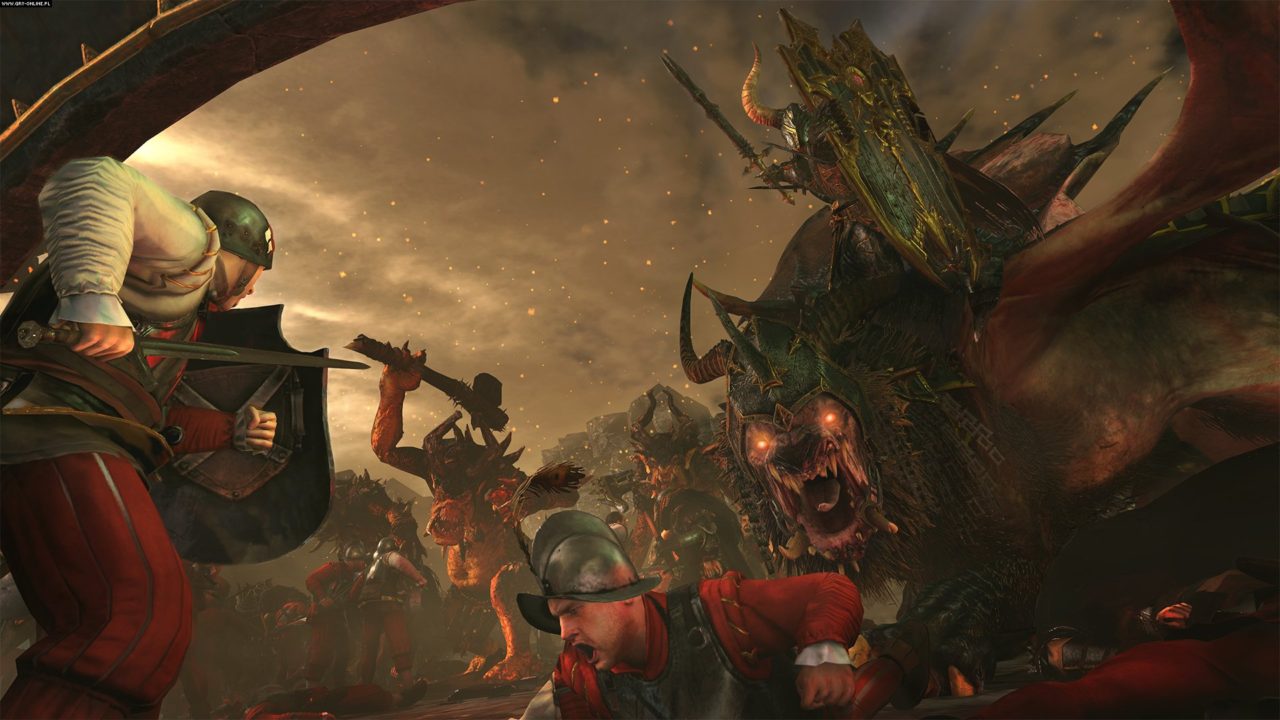
By the time the Chaos Gods decide to rear their heads and sweep through the map, it’s time to consolidate your conquests and try to hold your fledgling empire together. It feels as if it happens just a bit too early in most playthroughs, but I suspect that there would never be quite enough time to feel comfortable once the flood of corrupted marauders begins to eat away at everything still standing.
I would have liked to see more variation in the city-building and diplomatic aspects of the game, if only to stave off the nagging feeling that any negotiation is just a brief extension on time before you need to burn everything down. And since your population is little more than a gauge of what you’ll be able to build, there is little sense that you are ruling more than just drones to service your growing hordes.
Those are minor criticisms, and more about what the game is not than what it is. What is there, what Total War: Warhammer tries to do, it does brilliantly. Whether you’re a series veteran or newcomer, this is an easy recommendation for anyone with even the slightest inclination toward strategy games.
Follow Nate Church @Get2Church on Twitter for the latest news in gaming and technology, and snarky opinions on both.
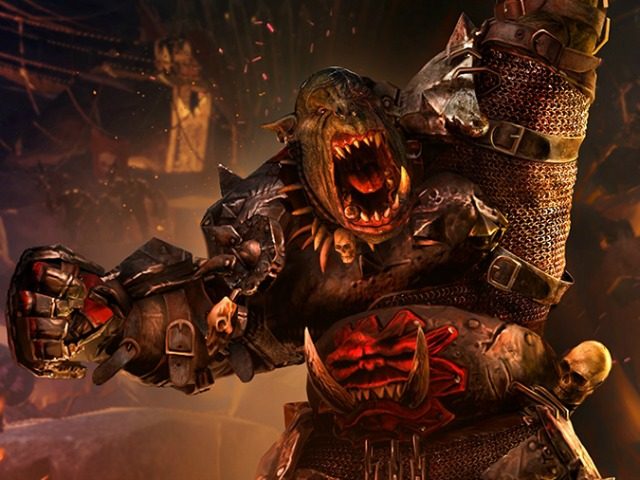
COMMENTS
Please let us know if you're having issues with commenting.